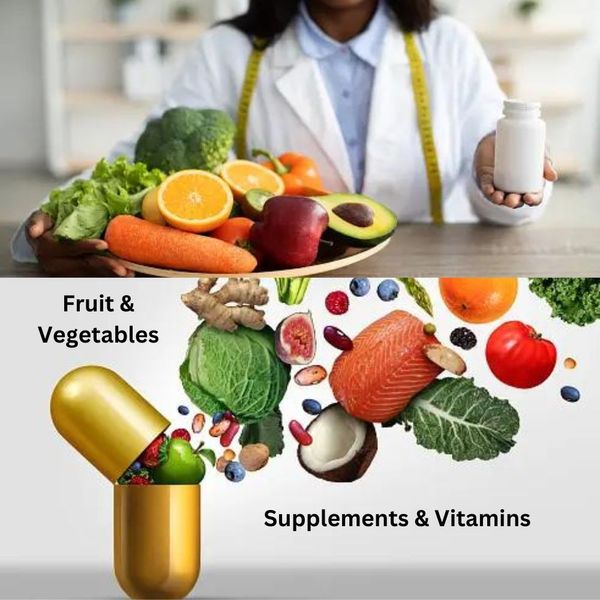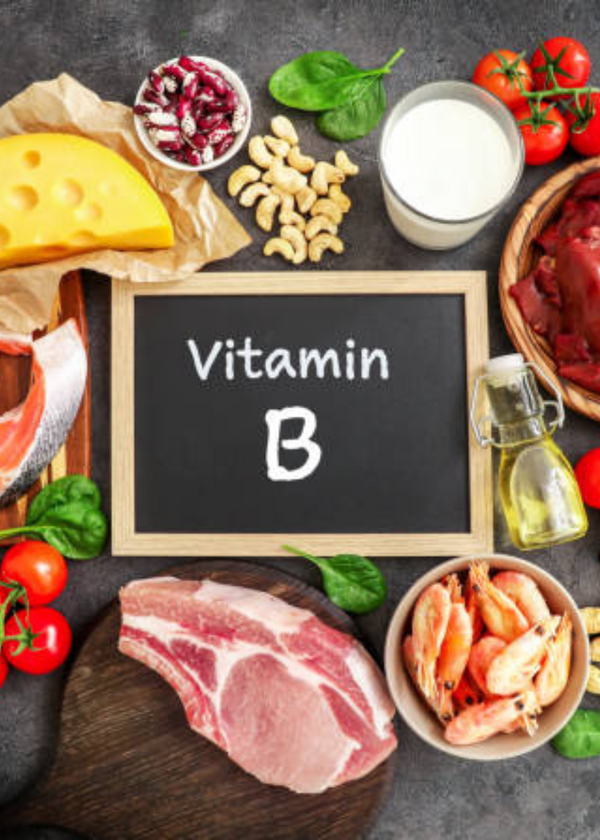There are a lot of different ways to boost your immune system for defense against illnesses . Some swear by drinking lots of orange juice, while others take daily vitamins. But what works? We did some research and found the best dietary supplements out there for boosting the immune.
When it comes to boosting your immune system, a high-quality vitamin C supplement is one of the most important nutrients. Unfortunately, many people don't get enough milligrams of vitamin C in their diets.
While you can find some foods that are naturally rich in vitamin C supplements, supplements are often necessary to ensure that you're getting enough of this essential nutrient. Here are five of the best vitamin C supplements to help boost your immune system.
How We Chose the Best Vitamin C for Immune-Boosting
Choosing the best C Vitamin for immune-boosting can be a difficult task. Factors such as age, weight, and activity level can all affect which type of vitamin C supplement is best for you. That is why we take a holistic approach to determine the best supplement for you.
We look at your overall health and lifestyle, taking into account factors like diet and food sensitivities to find the optimal form of Vitamin C supplement for your needs.
Additionally, we look at important research that evaluates absorption rates in addition to the efficacy of form Vitamin. Our goal is always to recommend supplements with the highest absorption rate that will produce real results in supporting your immunity and delivering optimal health outcomes.
What You Should Know?
-There are many types of vitamin c to choose from. Some examples are powder vitamin C, liquid Vitamin C, Raw Vitamin C, organic vitamin C, and Topical vitamin C.
-The formula contains L-ascorbic acid, the purest form of vitamin C for powerful antioxidant protection, as well as hyaluronic acid for an added boost of hydration.
-Quicksilver Scientific Liposomal Vitamin C 3.5 All ratings are determined solely by our editorial team.
- If you're not a fan of swallowing pills, chewable vitamin C tablets, Swanson Vitamin C Powder, Nordic Naturals Vitamin C Gummies, or Pure Encapsulations Liposomal Vitamin C liquid may be the product for you.
Emergen-C 1000mg Vitamin C Powder
For Daily Immune Support Caffeine Free Vitamin C Supplements with Zinc and Manganese, B Vitamins and Electrolytes, Super Orange Flavor - 60 Count/2 Month Supply
For Adults
Emergen-C 1000mg Vitamin C Powder is one of the best Vitamin C supplements available to boost your immune system. A single packet contains 1000 milligrams of Vitamin C per serving, which is considered an important vitamin for maintaining healthy immune function.
Additionally, this product contains Zinc and Manganese, B Vitamins, and electrolytes to help with overall wellness. Plus, it has a Natural Orange flavor that will make it even more enjoyable to take. Take up to two servings per day depending on what kind of immune support you need and stay well.
Nature’s Bounty Zinc 50mg
Immune Support & Antioxidant Supplement, Promotes Skin Health 250 Caplets
For Adults
Nature’s Bounty Zinc 50mg is a powerful Immune Support & Antioxidant Supplement designed to promote skin health. Best Vitamin C and immune boosters are combined to create an advanced nutrient system that helps with the absorption of calcium and vitamin D, while also aiding in energy production.
Best of all, it’s packed with antioxidant protection to help support cell renewal. Best Vitamin C and Immune Boosters together make Nature’s Bounty Zinc 50mg the ideal supplement for those wanting the full spectrum of nutrient protection!
Viva Naturals Sambucus Elderberry with Vitamin C
Zinc, Vitamin D3 5000 IU & Ginger (120 Capsules) - Antioxidant & Immune Support Supplement, 2 Month Supply - 5 in 1 Black Elderberry for Adults
For Children and Adults
Viva Naturals Sambucus Elderberry with Vitamin C, Zinc, Vitamin D3 5000 IU & Ginger is the perfect supplement for those looking to boost their immune system. Also, this 5 in 1 supplement not only contains elderberry but has Vitamin C, Zinc, and 5000 IU of Vitamin D3 plus ginger - making it one of the best sources of natural vitamins and minerals for both children and adults.
Best of all, each bottle comes with 120 capsules that offer a two-month supply. There's 52mg of vitamin c per serving. With one capsule per day as instructed, you can enjoy powerful antioxidant support and immune boosters that promote overall health.
Nature’s Way Sambucus Elderberry Gummies
For Kids, Immune Support Gummies, with Vitamin C and Zinc, Delicious Berry Flavor, 60 Gummies
For Children
Nature’s Way Sambucus Elderberry Gummies for Kids provides an easy and delicious way to support immune health and best of all, they come packed with the best vitamins C per serving and immune boosters like zinc. Delivering 60 gummies in a delicious berry flavor, Nature’s Way Sambucus Elderberry Gummies for Kids makes it simple and fun to give kids the best defense against illnesses. And with no artificial flavors, no artificial sweeteners colors, or preservatives, you can be confident that your kids are receiving safe and effective booster nutrition in a great-tasting form.
Don't miss out on the best defense against illnesses – Nature’s Way Sambucus Elderberry Gummies are the best vitamin c gummies on the market for Kids!
Garden of LifeVitamin Code Raw Vegan Zinc Capsules
30mg High Potency Whole Food Supplement Plus Vitamin C, Trace Minerals & Probiotics for Skin Health & Immune Support, 60 Count
Garden of Life Vitamin Code Raw Vegan Zinc Capsules provide a powerful and convenient way to improve your skin health, immunity, and overall well-being. Each vegan capsule is 30 mg of vitamin c per serving high potency vitamin and sourced from whole foods for maximum nutritional benefit.
The zinc capsules also include vitamin C, trace minerals, and probiotics for added immune support. Best of all, each capsule also contains the best vitamin C supplementation available - fermented vitamin c citrus to aid in absorption - making it easier to enjoy the full spectrum of benefits these capsules offer.
Whether you're looking for an immune booster or just want to increase your daily nutrient intake, Garden of Life's Vitamin Code Raw Vegan Zinc Capsules can take care of it all!
Best Vitamin C For Immune Boosters FAQs
Keeping our immunity strong is one of the most important things to do right now. Taking the Best Vitamin C supplement is one of the best ways to achieve that. Read these questions to help you to understand everything you need to know about Best Vitamin C intakes and help you make an informed decision when it comes to what kind of Vitamin C supplement you should take.
What are the benefits of vitamin C?
Vitamin C is one of the most important vitamins for overall health and well-being. Vitamin C has been known to play a role in reducing the risk of many chronic diseases, including cancer, heart disease, and stroke, as well as maintaining healthy skin, bones, and teeth.
Vitamin C is an antioxidant that helps protect cells from damage caused by free radicals. Vitamin C prevents or delays cellular damage often caused by exposure to environmental toxins such as cigarette smoke, air pollution, and ultraviolet radiation from the sun. Vitamin C also helps boost immune functioning by increasing white blood cell production which is essential for fighting off infection - making it particularly beneficial during cold & flu season.
In terms of overall health benefits, vitamin C plays an important role in preventing cardiovascular disease by reducing levels of bad cholesterol (LDL) while increasing levels of good cholesterol (HDL). Additionally, vitamin C can help reduce inflammation throughout the body which can contribute to conditions like asthma and arthritis when left unchecked.
Other benefits include aiding in digestion due to its role in helping our bodies absorb iron more efficiently; supporting muscle recovery after exercise; slowing down signs of aging due to its anti-oxidant effects; providing relief from certain headaches; and even potentially protecting against certain types of cancer such as colon cancer due to its ability to break down carcinogens before they reach their target organs.
Taking all these factors into consideration, it’s no wonder why consuming enough vitamin C – either through food sources or supplements – should be part of your daily routine!
What foods are high doses of vitamin C?
Vitamin C offers essential nutrients that help to maintain healthy bones and teeth, keep your skin healthy, heal wounds, and fight off illnesses like colds and flu. As such, vitamin c is important to make sure that you are consuming enough vitamin C for a healthy diet.
Fortunately, there are a variety of foods high in vitamin C available for those looking to meet their nutritional needs. Citrus fruits like oranges & orange juice, lemons, and limes contain the highest concentrations of vitamin C; an orange alone can provide up to 70 mg of the nutrient per serving. Vegetables like bell peppers also have high levels of Vitamin C per serving; one cup (150 mg of vitamin c per serving) of raw sweet green peppers delivers about 127 mg of vitamin c dose.
Other great sources include broccoli (a ½ cup provides 41 mg), Brussels sprouts (boiled or steamed for one-half cup provides 48mg), cauliflower (one-half cup cooked contains 28 mg per serving), kiwi fruit (one medium size contains 64mg) papaya (1/2 cup diced has 88mg), strawberries (1/2cup pieces contains 49mg), tomatoes( 1 medium raw has 24 mg).
Many food items contain lesser amounts of Vitamin C so if you want a higher concentration then look towards fruits and vegetables as they tend to provide some very good sources! For example, cantaloupe can give you 29 mg per ½ cup cubes while frozen spinach can provide 8 grams for each half-cup portion consumed! Dark leafy greens like kale offer more than 53 milligrams per 1/2 cup per serving when boiled or steamed!
Additionally, dairy products typically do not contribute much vitamin c but fortified cereals can add a bit more into your daily diet with anywhere from 15–100 milligrams per served bowl depending on the type chosen!
How much vitamin C should I take to boost my immune system?
Taking adequate amounts of vitamin C is a great way to help boost your immune system and ensure optimal health. While many factors can influence the amount of Vitamin C that you need, the recommended dietary allowance (RDA) for adults aged 19-50 is 90 mg of vitamin c per serving per day for men and 75 mg of vitamin c per serving per day for women. For those over 51, the RDA increases to 120 mg per day for men and 95 mg per day for women.
In addition to keeping up with your RDA, it's also important to consider other sources of vitamin C such as food sources or supplements. Vitamin C-rich foods include oranges, grapefruit, strawberries, kiwi fruit, bell peppers, broccoli, and spinach, and kale has an increased amount of vitamin c. In terms of supplementation options beyond the RDA level this could reach up to 1000mg daily in two divided high doses under physician supervision if needed; however, always consult with your doctor before starting any new supplements or changes in diet so that you can be sure it’s safe for you specifically!
At its most basic level though at least sticking within the recommended dietary allowance is an excellent start toward boosting immunity through an increased amount of vitamin C intake!
What are the signs of vitamin C deficiency?
Vitamin C deficiency, also known as scurvy, is a preventable but potentially serious condition that can occur if you don’t get the appropriate amount of vitamin C in your diet. Vitamin C absorption helps the body's collagen production, and immune function, and prevents poor wound healing.
Early signs of a vitamin C deficiency include fatigue and physical weakness, muscle aches, joint pain, behavioral changes such as irritability or depression, dry skin or wrinkles that appear prematurely gum disease, or bleeding gums. Other signs may include weight loss due to a lack of appetite or decreased ability to absorb iron from food sources.
Without enough iron in your body, you won't be able to make hemoglobin which carries oxygen throughout the body for energy production. A prolonged vitamin c deficiency can lead to anemia as well as more severe symptoms such as impaired vision in extreme cases.
If left untreated these symptoms can become more severe including loose teeth which may eventually fall out due to weakened gums; general slowing down of all functions causing tiredness; delayed wound healing; easy bruising; slow healing cuts/scrapes; the decreased ability of the body to fight off infections resulting in frequent colds/flu episodes; increased risk for coronary artery disease or stroke-related conditions like an irregular heartbeat (arrhythmia); internal bleeding leading further health complications even death at its worst case scenario depending on the severity of various factors including age/health status/lifestyle habits etc.
It's best not to wait until these common signs appear before taking action by ensuring adequate consumption of Vitamin-C-rich foods through regular meals along with taking supplements when needed i.e., if under doctor-prescribed medication since some drugs can deplete one's level faster than normal while others may require additional supplementation over a long period during the recovery period after surgery etc.
High-dose vitamin C-rich foods include citrus fruits & juices, broccoli, kale, spinach, bell peppers, tomatoes & tomato juice. Eating healthy balanced meals also providing plenty of water is always advised from every perspective.
What are the best vitamin C supplements?
Vitamin C is a crucial component of health and it is important to ensure that you get enough of this nutrient. There are many great vitamin C supplements on the market, including chewable tablets, capsules, liquids, and powders. The best form of vitamin C supplement will depend on your individual needs as well as your budget.
Chewable tablets such as Emergen-C allow for quick and easy absorption into the body while being cost-effective. Capsules might be better if you’re looking for more precise dosing or have difficulty swallowing pills. While liquid forms are easy to swallow but tend to be more expensive than other forms of supplementation due to their convenience as they can be taken directly without needing water or juice with them.
Powders can provide a larger dose at once but may not taste great when mixed with liquids for consumption so some people prefer flavored versions instead which may also include additional vitamins like B12 or other minerals which could help support overall immunity.
No matter what form you choose it is important that your vitamin C supplement contains at least 500 mg per serving (unless otherwise directed by a doctor). Additionally, try to look for vitamin c brands that use natural sources like Acerola cherry rather than synthetic ones since these are generally much better absorbed in comparison due to their higher bioavailability level compared to their synthetic counterparts found in most store-bought supplements today.
Furthermore, make sure that the ingredients list does not contain any additives or artificial sweeteners which may nullify the benefits derived from taking Vitamin C!
What are the side effects of taking too much vitamin C?
Taking too much Vitamin C can have some very serious side effects. One of the most common and widely known is digestive problems such as nausea, vomiting, stomach cramps, and diarrhea. Too much Vitamin C intake can also cause headaches, insomnia, and a feeling of uneasiness or restlessness due to the body's inability to properly absorb large doses of vitamin C.
Furthermore, consuming more Vitamin C than needed may increase your risk for kidney stones if you already suffer from calcium oxalate-type kidney disease or hyperoxaluria. Kidney stones can be very painful.
More concerning symptoms associated with taking excessive amounts of Vitamin C include signs of liver stress or damage including malaise (a general feeling of discomfort or feeling unwell), jaundice (yellowing eyes and skin), fatigue, and elevated transaminase levels in the blood; even potential organ failure has been reported in extremely severe cases.
It is important to talk with your healthcare provider before taking any type of supplement including vitamins like Vitamin C to make sure that it is safe for you based on information such as health history or allergies. Generally speaking, adults should aim not to exceed 2500mg/day unless otherwise directed by their healthcare provider but this could vary depending on individual needs as well as whether someone is pregnant so please always check with a professional!
Is it safe to take vitamin C supplements?
Yes, it is generally safe for most people to take Vitamin C supplements. Many healthcare professionals recommend taking a daily dose of Vitamin C as an important part of a healthy lifestyle.
Vitamin C is an essential nutrient that the body needs to maintain good health and fight off illnesses like colds and flu. Vitamin C helps prevent premature aging, bolsters the immune system, and can even help protect against cardiovascular diseases such as stroke and heart attack. Vitamin C also aids in iron absorption which helps keep red blood cells healthy by ensuring enough oxygen circulates throughout the body.
Additionally, these powerful antioxidant properties help protect cells from damage caused by free radicals while reducing inflammation throughout the body.
It’s important to note that although it's generally considered safe for adults to take up to 2,000mg of Vitamin C per day (any more than that could cause bowel issues), pregnant women should talk with their doctor before taking any vitamin C supplements as doses higher than 70mg may be harmful to the fetus or newborn baby.
For those who are concerned about getting vitamin c from supplements or food sources (citrus fruits, bell peppers, etc.), you can choose foods fortified with smaller doses of vitamins or multivitamins instead which usually contain only a small amount of vitamin c alongside other important vitamins and minerals like zinc and folic acid for optimum nutrition levels in your diet.
In conclusion, there are numerous health benefits associated with taking adequate amounts of vitamin c regularly but seeking advice from your doctor before introducing any supplement into your lifestyle is always recommended!
What does vitamin c do?
Vitamin C is a nutrient found in foods such as red peppers, citrus fruits, broccoli, and other sources. Vitamin C plays an important role in our bodies since it helps form and repair tissues such as skin, muscles, ligaments, joints, and blood vessels.
It also works together with several enzymes to support chemical reactions for important metabolic processes. Vitamin C is a powerful antioxidant that protects cells from potentially harmful molecules called free radicals; these are formed when the body breaks down food or is exposed to radiation or smoke from cigarettes. By neutralizing these dangerous particles, vitamin C helps protect us from many health conditions like heart disease and cancer.
Vitamin C aids in the production of collagen which gives structure to bones, teeth cartilage, and skin; this makes it essential for wound healing by helping repair tissue damage caused by injury or surgery – this process also requires zinc which binds with Vitamin C's antioxidant properties at the site of injury so they can interact effectively with damaged tissues.
Not only does Vitamin C help fight off colds but it can also reduce symptoms once you have one; research shows that people who take enough vitamin c have fewer colds than those who don’t get enough of the nutrient regularly – although taking a high dose supplement won’t provide any additional benefits beyond what your body needs daily (which varies depending on age).
It has even been shown to reduce inflammation related to gout attacks which can cause severe joint pain due to the buildup of uric acid crystals within joints causing damage over time if left unchecked.
Overall Vitamin C plays an integral role in maintaining good health by not just keeping us safe from various illnesses but also aiding certain bodily repairs – making sure you're getting your daily recommended value (which ranges between 65mg-90mg for adults) is key for reaping maximum benefits!
What vitamins should I take when sick?
Vitamins C and D, Echinacea, and zinc have evidence-based efficacy on these immune barriers.
When you’re sick, it’s important to support your body with proper nutrition and supplementation to help boost immunity and promote healing. Taking the right vitamins can be a great way to do this.
One of the best vitamins for fighting off colds or other illnesses is Vitamin C. This vitamin has been shown in studies to reduce the duration of cold symptoms by up to 8%. Other studies have also indicated that Vitamin C can reduce inflammation caused by infection, which could potentially speed up overall recovery time. The most common recommended dosage for adults is 200mg per day, but this may vary depending on an individual's medical condition or needs.
Vitamin D3 is another vitamin often taken when sick as it helps support your body's immune health. It has been observed that people who are deficient in Vitamin D are more susceptible to getting sick due to a weakened immune response.
The recommended daily amounts for adults vary from 400 – 1000 IU per day, however, some experts suggest taking 4000 IU/day if you're deficient in this vitamin - it's always best practice to speak with a doctor first before increasing dosages significantly above accepted standards though!
Elderberry extract is another popular supplement when someone has caught a viral infection such as influenza or even just a cold virus as it's known for having antiviral effects; research suggests that elderberry extract may help shorten the duration of these illnesses too!
Studies have demonstrated Elderberry extract can inhibit viral replication while promoting faster recovery - typically 1 tablespoon of syrup (1 gram) taken four times per day works well during an active virus episode.
Finally, Zinc lozenges are also beneficial; they contain zinc gluconate which directly interferes with certain enzymes hijacked by viruses thus helping stop them from reproducing within our cells and making us sick for longer periods!
Studies show taking zinc lozenges at least every 2 hours (while awake) during acute infection can reduce symptoms and lessen how long we stay ill so it's something worth considering trying out if you don't like the idea of taking antibiotics or elderberry extract medications etcetera!
Where can I find more information about vitamin C and boosting my immune system?
Vitamin C offers essential nutrients that have been linked to numerous benefits, including boosting the immune system. As such, it’s important to make sure your body gets enough of it daily. There are many sources of vitamin C, and getting enough can be easily achieved by making some dietary changes or taking supplements.
First off, let's start with dietary changes you can make to get more vitamin C in your diet. Many organic food blend fruit and vegetables are great sources of this nutrient; some well-known options include oranges, strawberries, broccoli, kiwi fruit, spinach, and other leafy greens. Eating these foods regularly will provide your body with the recommended daily intake (RDI) of 90 mg for adults (115 mg for pregnant women).
In addition to increasing consumption of these foods, you should avoid overcooking them as vitamin C is highly heat sensitive and easily destroyed during cooking processes.
If eating additional fruits and vegetables isn't an option or doesn't provide you with sufficient levels of the best vitamin C supplements in your diet may be necessary. Vitamin C pills are widely available over the counter so they're easy to find at grocery stores or drugstores; however, there’s a wide range in terms of quality so reading labels carefully is key when selecting one that best suits your needs.
Typically speaking though dosage between 60-200mg per day is sufficient for most people looking for general health benefits from Vitamin C supplementation – higher dosages may induce undesirable side effects like nausea depending on how much you take each day so it's always better to consult with a doctor first before considering those amounts!
To summarize: vitamin C plays a critical role in immunity and overall health. It can be obtained through healthy eating habits or supplementation when necessary - but remember that excessive amounts can also lead to negative side effects which might outweigh any potential benefit!
Therefore proper dosage guidelines should always be followed closely if supplementing this nutrient into one's diet plan - especially since RDI requirements do vary by gender/age group etcetera per individual case basis!
Best Advice From Top Authentic Reviews
It's essential to do your research when choosing vitamin C as an immune booster. Vitamin C is considered a powerhouse of the immune system and can help ward off illnesses. As with all supplement choices, be sure to speak with a healthcare professional to determine whether vitamin C is right for you.
Consider if the cost of buying it in bulk supplements is right for you, and think about if taking one strong mixture at specific times could provide more benefit than taking smaller amounts throughout the day. After doing your research on top authentic reviews, check prices on Amazon to decide which vitamin C and dosage suits you best for you.












